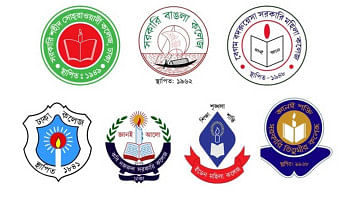No fiscal resources for environment

Though the Ministry of Environment, Forest and Climate Change has been allocated Tk 1,639 crore in the national budget 2023-24 -- a Tk 282 crore increase from the previous year's budget -- the government did not allocate any fiscal resources to deal with the environmental threats, including the rising temperature and natural catastrophes.
Climate finance experts labelled this allocation as "project-based allocation" and said this approach reflects the government's mindset of playing down the impact of rising temperatures and natural catastrophes stemming from climate change.
Out of the total allocation for the environment ministry, the operational cost amounts to Tk 788 crore, while the development cost stands at Tk 851 crore.
Rashed Al Mahmud Titumir, chairman of the Department of Development Studies at Dhaka University, told The Daily Star that just a few weeks back, the country witnessed a devastating cyclone and will see many more in the coming days. On top of that, heat waves have also become regular in Dhaka and other areas.
"Despite the fact, there is no budgetary allocation to mitigate such impacts of climate change. We are still relying on our hopes of getting external loans to fight climate change. The recently appointed heat officer said Dhaka's green coverage must be expanded. However, allowing fiscal resources to that end is of paramount importance," he said.
"We ought to augment the budget for a Climate Trust Fund, which we did not. We keep discussing the impacts of climate action and the next course of action but there is no budgetary initiative in this regard," he added.
M Zakir Hossain Khan, founder and chief executive of Change Initiative, told The Daily Star that the economic loss caused by air pollution alone, amounts to 3.5 percent of the total GDP (Gross Domestic Product).
He said if the 3.5 percent loss in GDP is taken into account, the allocation of Tk 1,639 stands nowhere against the economic loss due to pollution.
"On top of that, if we factor in the real inflation, the allocation did not increase at all. This is a project-based approach, while what we need is a basic allocation to mitigate air pollution," he said.
He observed that a project-based solution does not result in a long-term solution. To achieve Sustainable Development Goals (SDGs), which prioritise environmental sustainability, the country needs to opt for fiscal resources to deal with the environmental crisis.
Syeda Rizwana Hasan, chief executive of Bangladesh Environmental Lawyers Association (Bela) told The Daily Star that Bangladesh globally ranks 179 out of 180 countries in the Environmental Performance Index, which reflects the dire state of the country's environmental conservation.
"The scenario will not change if the capacity of the Department of Environment is not enhanced. As a regulatory agency, their monitoring capacity must be improved by ensuring that they have enough human resources for the job. The department also needs motivation," she said.
"However, the motivation will not see an increase if environmental issues are not prioritised in the overall political context of the country," she added.

 For all latest news, follow The Daily Star's Google News channel.
For all latest news, follow The Daily Star's Google News channel. 



Comments